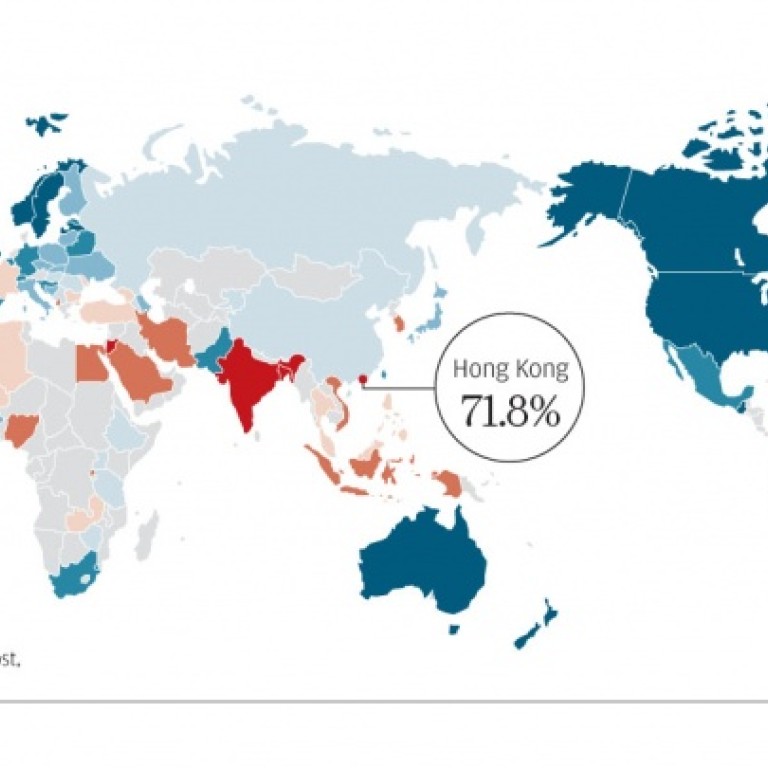
We love our neighbours, but only if they're like us
More than 7 out of 10 Hongkongers would not like to live next to people of a different race - the highest percentage in worldwide survey
What's going on in "Asia's World City"? A whole lot of racism, it seems, at least if a new world map on people's attitudes towards race is to be believed.
When asked the question "Who would you not like to have as a neighbour?", 71.8 per cent of Hongkongers said they would not want to live next to people of a different race, the highest figure in a survey covering 81 countries that was published in on Wednesday.
Respondents were given choices for their answer, such as people of a different race, criminals, drug addicts, and those of different religious backgrounds, and asked to choose.
I also think this example doesn't give Hong Kong people enough credit. There are a lot of things that Hong Kong people are more tolerant of that other people aren't elsewhere in the world. For instance, Islam isn't a contentious issue in Hong Kong
The figures, part of a survey by the World Values Survey Association that used the same methodology worldwide, place Hong Kong in an unflattering light.
In comparison, 43.5 per cent of Indians, 51.4 per cent of Jordanians and 71.7 per cent of Bangladeshis said the same. In most places the figure was below 40.
The local data is from a 2005 questionnaire by Hong Kong University sociologist Ng Chun-hung on behalf of the project.
While people on social media sites were quick to point out examples that supported the results, experts had another view.
"It's a fair representation of what was going on eight years ago," said Paul O'Connor, assistant professor of anthropology at the Chinese University of Hong Kong. "But in the last few years things have changed, with tension between mainland Chinese and Hong Kong Chinese."
Because cosmopolitan and Western influences are qualities Hongkongers use to distinguish themselves from mainland Chinese, instances of racism are now less common against those who look different, he said.
"I also think this example doesn't give Hong Kong people enough credit. There are a lot of things that Hong Kong people are more tolerant of that other people aren't elsewhere in the world. For instance, Islam isn't a contentious issue in Hong Kong."
But he added: "It's still the case that the darker the skin colour the greater the prejudice ... It's still tough for ethnic minorities here."
Fermi Wong Wai-fun, of rights group Unison, and a long-term advocate of minority rights, said the findings were consistent with those of her organisation. "I know that Hong Kong doesn't have a race policy, and we're more about promoting Chinese culture than anything, but I'm surprised it's so high," she said.
But she added that part of the reason could be that the concept of neighbours in one country is different to that of a densely populated place like Hong Kong: "For Canada your neighbour might be 100 metres down the road, here you're window to window."
The Equal Opportunities Commission said it could not comment on the figures as they were unsure of the survey methodology, but said surveys done by the commission and the government do not seem to support the theory that racial tolerance is low.
WORLD CITY?
Hongkongers surveyed didn't want to live next door to:
- Drug addicts (10 per cent)
- Heavy drinkers (16 per cent)
- Emotionally unstable people (17 per cent)
- People with a criminal record (42.4 per cent)
- People who have Aids (43.1 per cent)
- Homosexuals (48.6 per cent)
- People of a different race (71.8 per cent)
- Immigrants/foreign workers (78 per cent)

